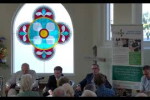
Millions of motorists are set to benefit from a major government crackdown on rogue parking firms which will see fines slashed and a clearer and fairer appeals system created.
A new package of measures will protect drivers from unfair and extortionate charges, with a new Code of Practice to help keep cowboy private parking firms in check. Private firms which breach the new Code could be barred from collecting fines from motorists at all.
Currently, private parking firms are able to hide behind non-specific, pseudo-legal and aggressive language when pursuing motorists.
The government’s Parking Code of Practice will provide new higher standards. The proposals include
- a maximum cap for parking fines;
- a 10-minute grace period before a late fine can be issued; and
- a requirement for parking firms to clearly display pricing and terms and conditions.
The Code will see parking fines cut by up to 50% in the majority of cases, saving motorists millions of pounds each year. Charges in Norfolk will be reduced from £100 to £70 or £50, depending on the seriousness of the breach.
A new, simpler appeals process is also being created, to make it easier for disputed fines to be cancelled.
Rogue firms which break these rules could be barred from requesting Driver and Vehicle Licensing Agency (DVLA) data, making them unable to pursue motorists for their charges through the post.
The measures will be a major boost to millions of motorists in England, Scotland and Wales and will help to draw people back to their local high streets by eliminating the fear of being unfairly caught out.
RAC head of roads policy Nicholas Lyes said -
The RAC has campaigned for years to end the sharp practices in the private parking sector, so we welcome the new national code that will usher in higher standards and will introduce a lower cap on penalty charge notices, an independent appeals system and an end to rip-off debt collection fees.
Fresh measures proposed in the new Code and Framework include the creation of a mandatory single Appeals Service and Appeals Charter for motorists to turn to if they are unfairly fined. Under options set out in the Appeals Charter, motorists could be able to appeal their fine and see it cancelled entirely if:
- they have a mitigating reason for overstaying their parking ticket such as their vehicle breaking down
- they have made a genuine innocent error, like keying in a digit in their number plate incorrectly
- they have a valid ticket, permit or Blue Badge but failed to display it correctly
The Code also states:
- New parking charge levels which will mirror the local authority system for publicly accessible car parks, halving parking charges for millions of motorists to £50. It will keep the current £100 cap in some circumstances such as abusing Blue Badge bays or if a motorist is trespassing on private land.
- Motorists will be offered a 50% discount if they pay within 14 days.
- Parking debt collectors will be banned from adding additional excess fees to the level of the parking charge, currently as much as £70.
- A compulsory 10-minute grace periods before firms can issue a late fine.
- A compulsory 5-minute cooling-off period in which a motorist can consider the terms and conditions and change their mind about parking.
- A crackdown on parking firms using aggressive or pseudo-legal language to intimidate motorists into paying fines.
- A requirement for parking firms to clearly display pricing and terms and conditions of parking, contact details and how to appeal a charge.
The Parking (Code of Practice) Act became law in March 2019 and builds on action the government has already taken to tackle rogue private parking firms, including banning wheel clamping and towing and stopping over-zealous parking enforcement by councils.
Background
The Parking (Code of Practice) Bill was a Private Members Bill introduced by Sir Greg Knight MP, supported by the Government and received Royal Assent in March 2019. It covers England, Wales, and Scotland – creating consistency for motorists everywhere in Britain.
Currently there are two parking trade associations, the British Parking Association (BPA) and the International Parking Community (IPC). Each has a Code of Practice that their members are required to abide by, but there is no single set of rules, so motorists are vulnerable to bad private parking practices such as deliberately poor signage and unfair parking fines.
Private parking companies who do not follow the Code by the end of 2023 could be banned from accessing Driver and Vehicle Licensing Agency (DVLA) data.

